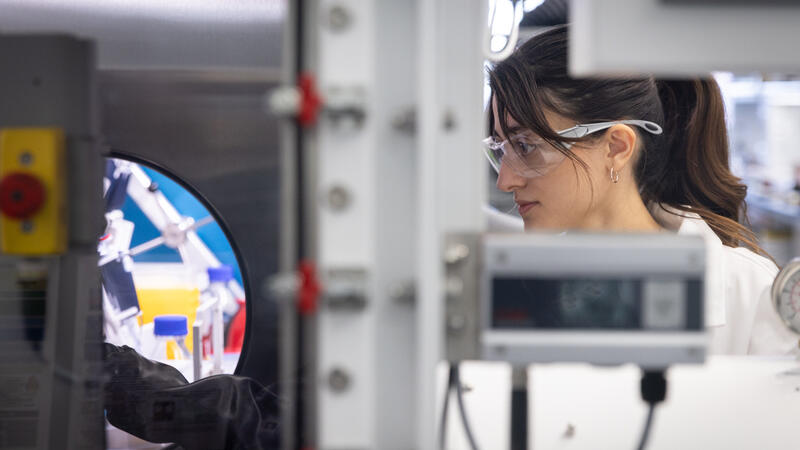News
Sustainable Biomass Conversion
Autonomous lab accelerates discoveries to harness power of microbes
An autonomous experimentation platform at the Great Lakes Bioenergy Research Center is poised to accelerate discoveries that will harness the power of microbes to advance U.S. leadership in the developing bioeconomy. With the ability to design and run multiple concurrent experiments, Proteus expands the scope and pace of exploration, potentially increasing the rate of discovery.
There are different ways to estimate the effect of bioenergy crop systems on global warming, but they don't always agree, and no one has done a direct comparison. Here, scientists compared three approaches on three crop systems over 13 years at a single experimental site.
GLBRC scientists combined machine learning and automated testing to streamline the tedious process of finding the right green solvent for isolating valuable bioproducts.
University of Wisconsin–Madison scientists used advanced microscopic imaging to better understand the structure and function of these granules and their roles in microbial biology. They found that stunting cell growth caused bacteria to accumulate significantly more PHB and PP concentrated in larger granules, suggesting the organelles play a role in stress response.
Two scientists with the Great Lakes Bioenergy Research Center have been elected to the American Academy of Microbiology.
Great Lakes Bioenergy Research Center co-investigator Daniel Amador-Noguez was recently awarded a Presidential Early Career Award for Scientists and Engineers, the federal government's highest honor for early-career scientists and engineers.
Grace Gooley is a senior at the University of Wisconsin–Madison majoring in chemistry and environmental studies. She’s working on her senior thesis in the Ive Hermans lab, where research focuses on the sustainable synthesis of chemicals using catalysts with the goal of producing commercial compounds in ways that generate less waste, consume less energy, or emit less greenhouse gases than existing techniques.
UW–Madison professor Holly Gibbs was recognized for outstanding contributions to understanding of global environmental change, while Jiquan Chen, a professor at Michigan State University, was honored for a distinguished record of research that has advanced the discipline of geography.
Transcription factors are proteins that bind to DNA inside a cell, activating or blocking the expression of a particular gene. Accurately predicting these gene regulators is a key step to making more productive and stress-resistant crops. But the complex interactions between DNA, RNA, and proteins within cells make this difficult, and scientists lack comprehensive datasets for most crop species. Therefore, scientists with the Great Lakes Bioenergy Research Center developed a user-friendly pipeline to identify the transcription factors that regulate target genes associated with important traits.
An Italian academy that once counted astronomer Galileo Galilei as a member has recognized a Great Lakes Bioenergy Research Center scientist for her contributions to plant science.
Inspired by the GLBRC, a middle schooler from Utah designed an experiment to test how enzymes affect the production of cellulosic biofuel.





